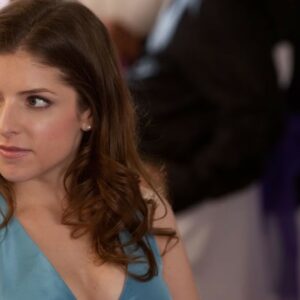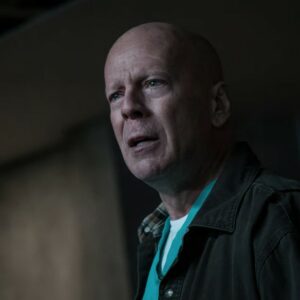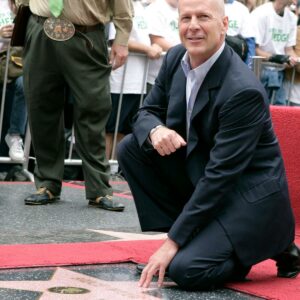From the moment he first stepped into the wizarding world, Daniel Radcliffe became synonymous with the character of Harry Potter, the boy who lived. Over the span of a decade and eight films, Radcliffe’s portrayal of the titular character not only became a defining element of the Harry Potter series but also shaped his career and left an indelible mark on popular culture. But behind the seemingly effortless portrayal of a beloved character lies an actor driven by an intense, almost obsessive, pursuit of perfection. Radcliffe’s dedication to capturing every nuance of Harry Potter’s character offers a masterclass in what it means to embody a role fully—and how this commitment transforms both actor and audience. His perfectionism is not only a key aspect of his portrayal of Harry but also a central theme in the evolution of his career and his relationship with his audience.
The Early Beginnings of Perfectionism
Daniel Radcliffe’s journey into the world of Harry Potter was anything but ordinary. At the tender age of eleven, Radcliffe was cast in the role that would forever alter his life. It was a casting decision that would eventually catapult him to international fame, but it also introduced him to the daunting task of playing one of the most beloved literary characters of all time. From the start, Radcliffe was committed to getting every detail of Harry Potter’s character just right, understanding that the responsibility was not just to bring a character to life, but to ensure that Harry was presented in a way that would satisfy the legions of fans who had read J.K. Rowling’s books.
Radcliffe’s perfectionism manifested early in his career. He didn’t merely memorize lines—he lived the character. Every expression, every gesture, every pause was carefully considered. He immersed himself in the character of Harry, from studying the books to researching how best to embody Harry’s inner world. He would constantly return to the source material, reading and re-reading the novels to make sure he captured the subtleties of Harry’s development. This dedication was not without its challenges, especially as a young actor tasked with portraying a character growing up in the public eye. The pressure to live up to fans’ expectations, while also staying true to his own vision for Harry, was immense.
In interviews, Radcliffe has often spoken about the psychological and emotional commitment he made to the role. Unlike many actors who might approach a role with a sense of detachment, Radcliffe’s approach was rooted in a profound emotional investment. “You just don’t want to disappoint people who love this character as much as you do,” he once said. This commitment to perfection was not only evident in his portrayal of Harry’s external traits but also in his understanding of the character’s internal struggles and growth.
The Psychological Depth of Harry Potter
One of the key elements of Daniel Radcliffe’s portrayal of Harry Potter is his ability to capture the psychological depth of the character. While Harry Potter is often seen as the courageous, stoic figure who saves the day, Radcliffe was committed to portraying the inner turmoil and complexity that lay beneath the surface. Harry’s journey is marked by grief, confusion, loss, and, ultimately, personal growth—elements that would challenge any actor to balance the demands of action sequences with those of emotional depth.
Radcliffe’s perfectionism shines brightest in his portrayal of Harry’s internal struggles. As Harry loses loved ones and faces trials that test his moral compass, Radcliffe’s nuanced performance brings these moments to life in a way that resonates deeply with the audience. Take, for example, the pivotal scene in Harry Potter and the Half-Blood Prince when Harry experiences the loss of his mentor, Dumbledore. The raw, unfiltered grief that Radcliffe conveys in that moment is nothing short of breathtaking. Through his eyes, viewers can sense the weight of the responsibility Harry now bears, and the emotional cost of that loss.
Radcliffe’s portrayal of Harry’s resilience in the face of overwhelming odds is also evident in his performances during the darker moments of the series. In The Deathly Hallows, when Harry learns of the significance of his own death, Radcliffe’s performance allows audiences to see a young man torn between his sense of duty and his fear of death. His ability to convey these layers of emotion—fear, confusion, determination—without ever tipping into melodrama was a testament to his mastery of the craft. Through his perfectionism, Radcliffe ensured that Harry’s emotional journey was not just believable but deeply moving.
The Complexity of Harry’s Relationships
In addition to his psychological depth, Radcliffe’s perfectionism is also evident in his portrayal of Harry’s relationships with those around him. One of the most significant aspects of the Harry Potter series is the evolving nature of Harry’s relationships with his friends, particularly Hermione Granger and Ron Weasley. These friendships are central to the story’s emotional resonance, and Radcliffe understood from the beginning that the subtleties of these dynamics would be just as important as the magical battles and life-or-death scenarios.
Harry’s relationship with Hermione, for example, is one of mutual respect, deep trust, and love—yet it is never overtly romantic. Radcliffe’s careful balancing of this dynamic, avoiding any melodramatic gestures or unnecessary flirtation, allowed the friendship to remain central to the story while also highlighting its significance. Similarly, his relationship with Ron evolves from rivalry to deep camaraderie, and Radcliffe’s performance skillfully captures the complexities of these transitions. The way Harry interacts with these characters—whether through quiet moments of support or shared acts of bravery—becomes a mirror for his own emotional growth, and Radcliffe’s attention to detail is crucial to the authenticity of these relationships.
Another example of Radcliffe’s perfectionism can be seen in his portrayal of Harry’s sense of belonging. For much of the series, Harry struggles with feelings of isolation, stemming from the loss of his parents and the weight of his destiny. His journey of self-discovery and acceptance is intimately tied to his relationships, particularly with Ron and Hermione, who serve as his family. Radcliffe’s nuanced portrayal of these relationships gives the audience a sense of Harry’s evolution from a lonely, orphaned child to a young man who understands the value of love and friendship. It is a subtle yet powerful element of Radcliffe’s performance that underscores the emotional richness of the series.
The Physical and Emotional Demands of the Role
Playing Harry Potter was not just an emotional and psychological challenge; it was also physically demanding. The Harry Potter films are filled with high-stakes action scenes, intense magical duels, and physical stunts. Radcliffe, known for his perfectionism, was often determined to perform as many of his own stunts as possible, pushing his body to the limit to capture the intensity of Harry’s world. His commitment to realism and authenticity in these sequences reflects the same level of attention to detail that he brought to his emotional performance.
Behind the scenes, Radcliffe’s dedication to his physical preparation was extensive. For example, during the production of Harry Potter and the Goblet of Fire, Radcliffe underwent extensive training for the Triwizard Tournament’s dragon sequence. He spent hours perfecting the scene, working closely with the film’s stunt coordinators to ensure that the danger and urgency of the moment were conveyed realistically. This dedication to authenticity, even in the more physically taxing scenes, speaks to Radcliffe’s desire to make every aspect of the Harry Potter experience as vivid and true to life as possible.
However, the emotional toll of the role was perhaps even greater. Over the years, Radcliffe grew with Harry, and as the character faced loss, betrayal, and the constant burden of destiny, so too did Radcliffe. The emotional weight of these experiences was not easy to bear. In interviews, Radcliffe has discussed how he often found it difficult to shake off the intense emotions of his character after long days of filming. The pressure to maintain Harry’s moral integrity while also navigating the tumultuous world of adolescence was not an easy feat, but Radcliffe’s perfectionism pushed him to excel in both areas.
Radcliffe’s Legacy
As Radcliffe moved beyond the Harry Potter series, his career took on a distinctive trajectory. Determined not to be typecast as the young wizard who defeated Voldemort, Radcliffe embraced a wide range of roles, from quirky comedies like The Woman in Black to avant-garde theater productions. His decision to take on such diverse roles was a direct result of the lessons he learned from playing Harry Potter.
Radcliffe’s perfectionism, once honed to bring Harry Potter to life, became a guiding principle in his subsequent career choices. He avoided the trap of complacency, constantly seeking out roles that challenged him both emotionally and artistically. Whether it was playing a suicidal man in Swiss Army Man or tackling the complexities of Miracle Workers, Radcliffe demonstrated that his commitment to perfectionism extended beyond the Harry Potter series.
His ability to continuously evolve as an actor, while remaining true to the depth and dedication he brought to his earliest roles, ensures that Radcliffe’s legacy will not be defined solely by the role of Harry Potter. Instead, he will be remembered as an actor whose unwavering perfectionism shaped not only the character of Harry Potter but also the way audiences connect with the stories and characters he brings to life.
Conclusion
Daniel Radcliffe’s perfectionism in his portrayal of Harry Potter was not merely about capturing every detail of a beloved character. It was about understanding the emotional and psychological journey of a young man who was destined for greatness and carrying that weight with grace. Radcliffe’s commitment to getting every aspect of Harry right transformed the character into something more than just a fictional wizard—it made him a cultural icon. But more than that, Radcliffe’s perfectionism shaped his career, ensuring that his legacy in the entertainment industry will forever be intertwined with the boy who lived. Through his dedication and artistry, Radcliffe demonstrated that the pursuit of perfection is not just about delivering a flawless performance; it’s about making a character and a story resonate with audiences long after the credits roll.





